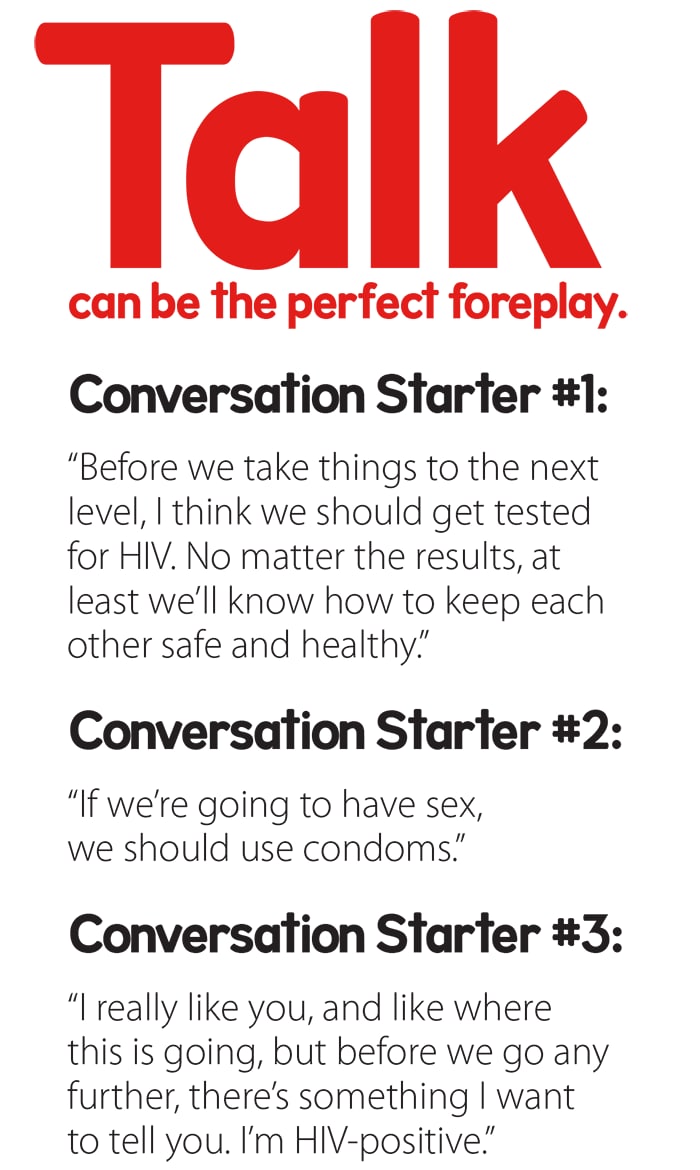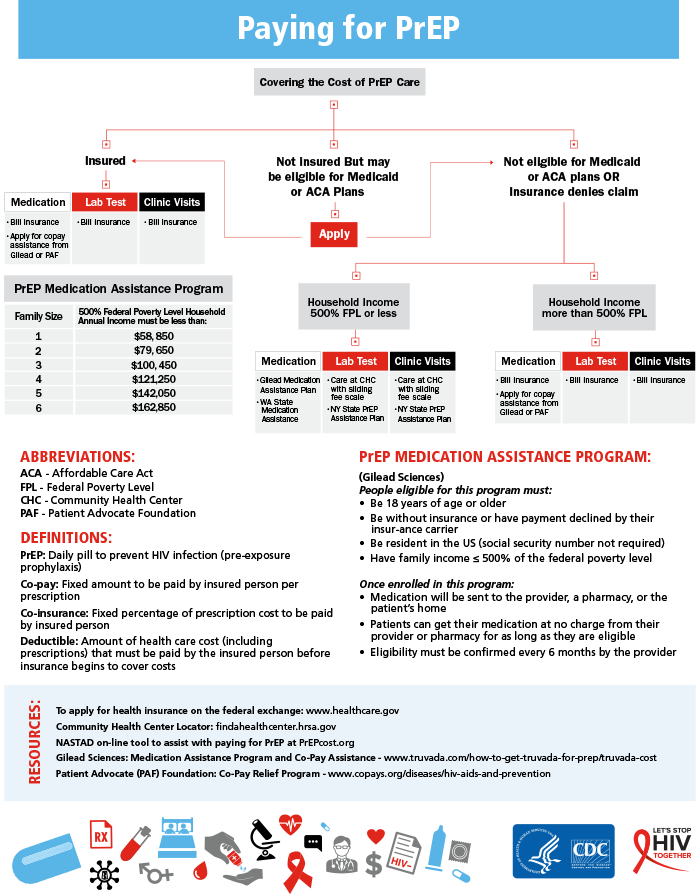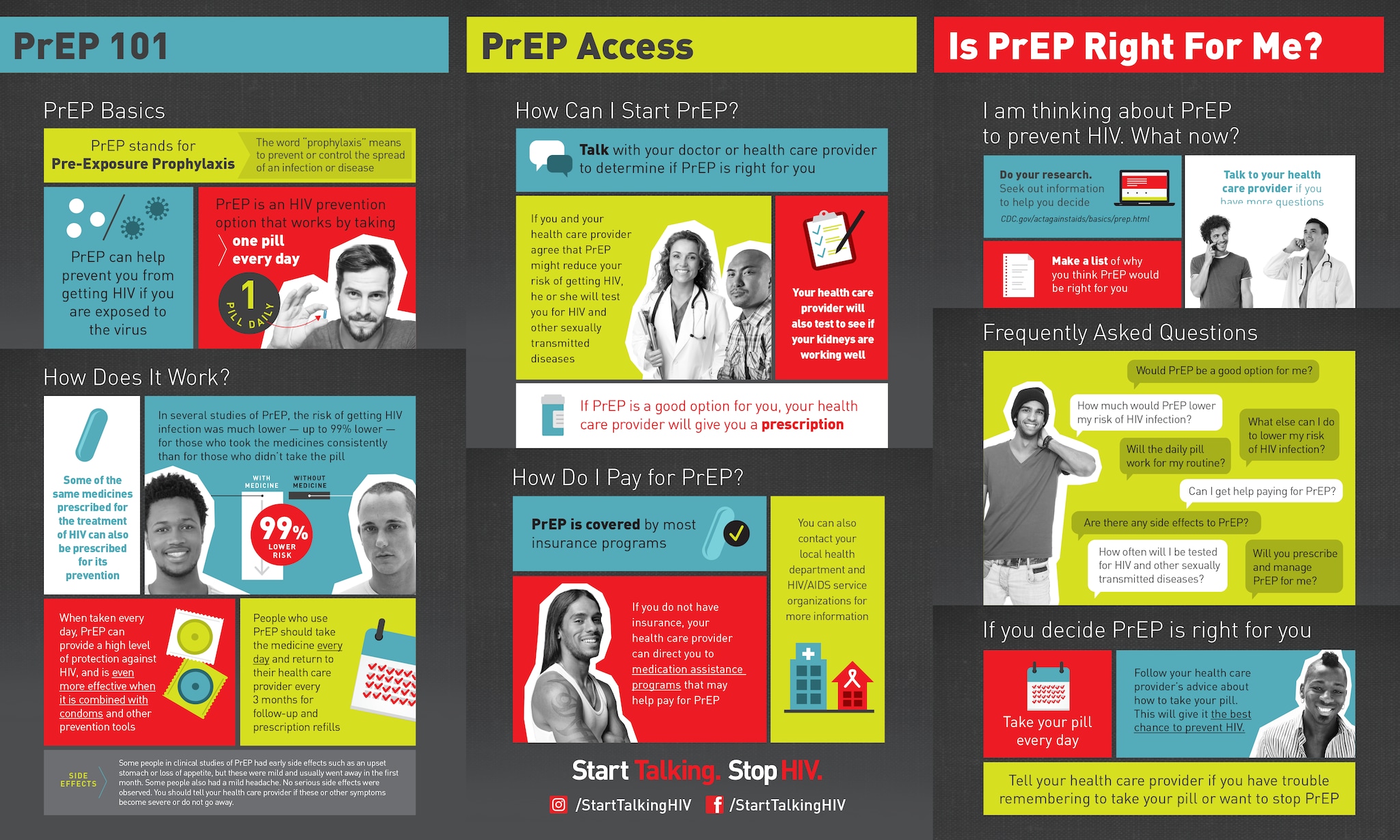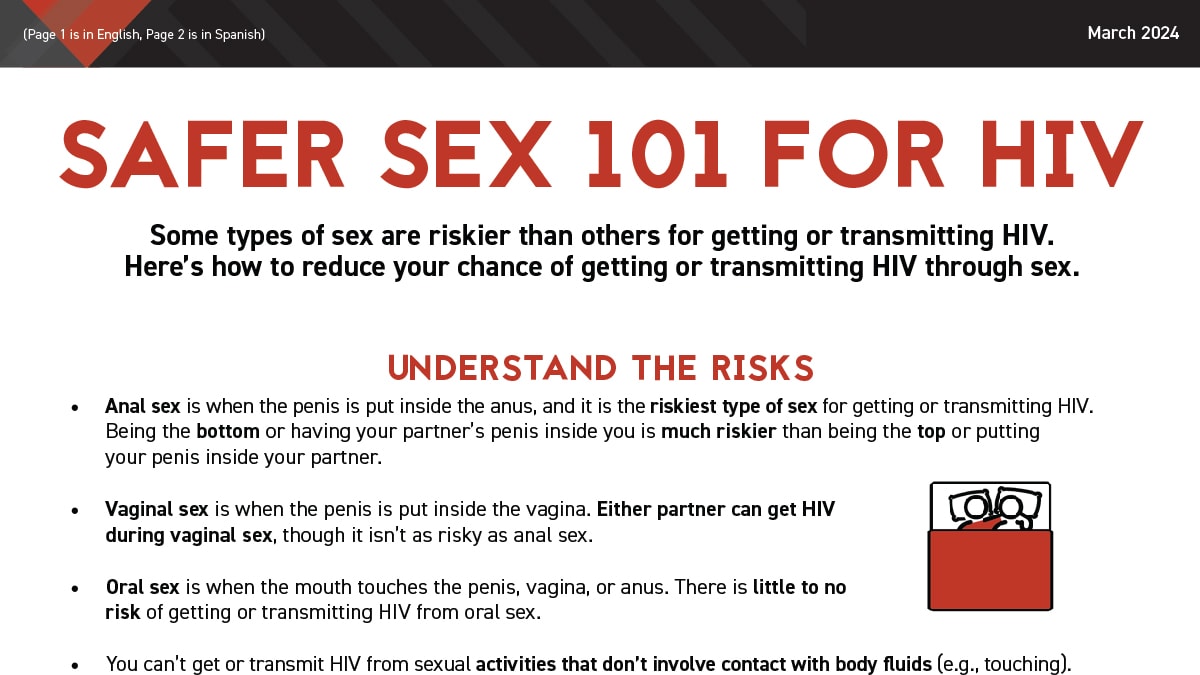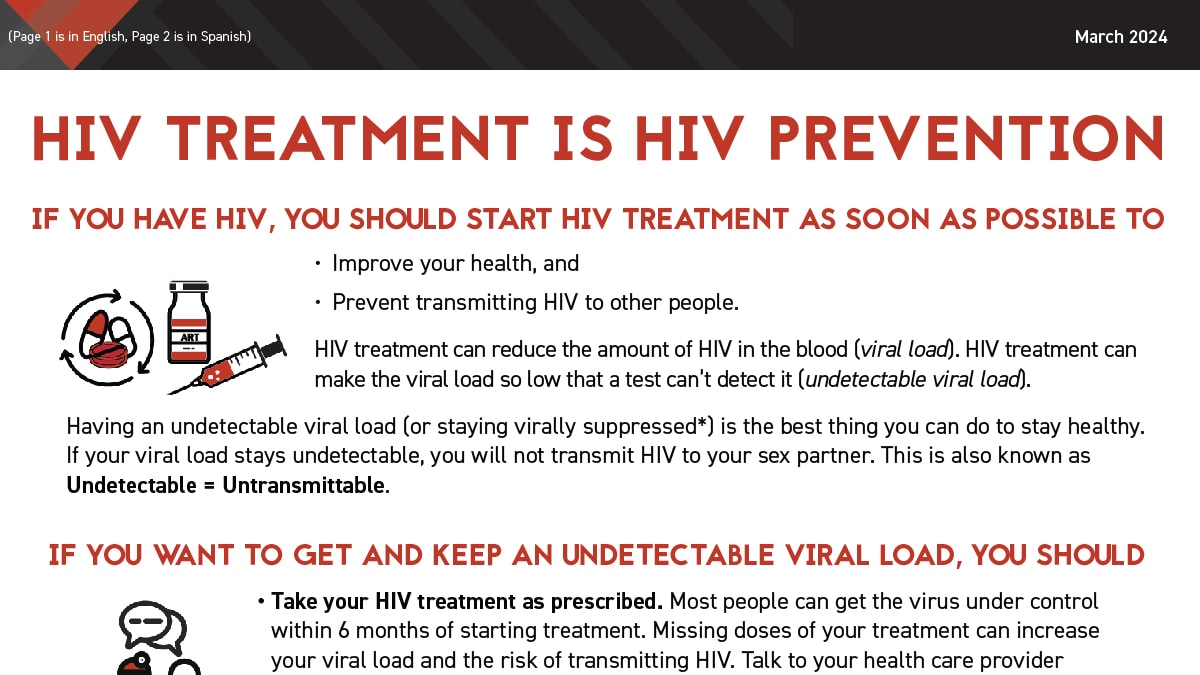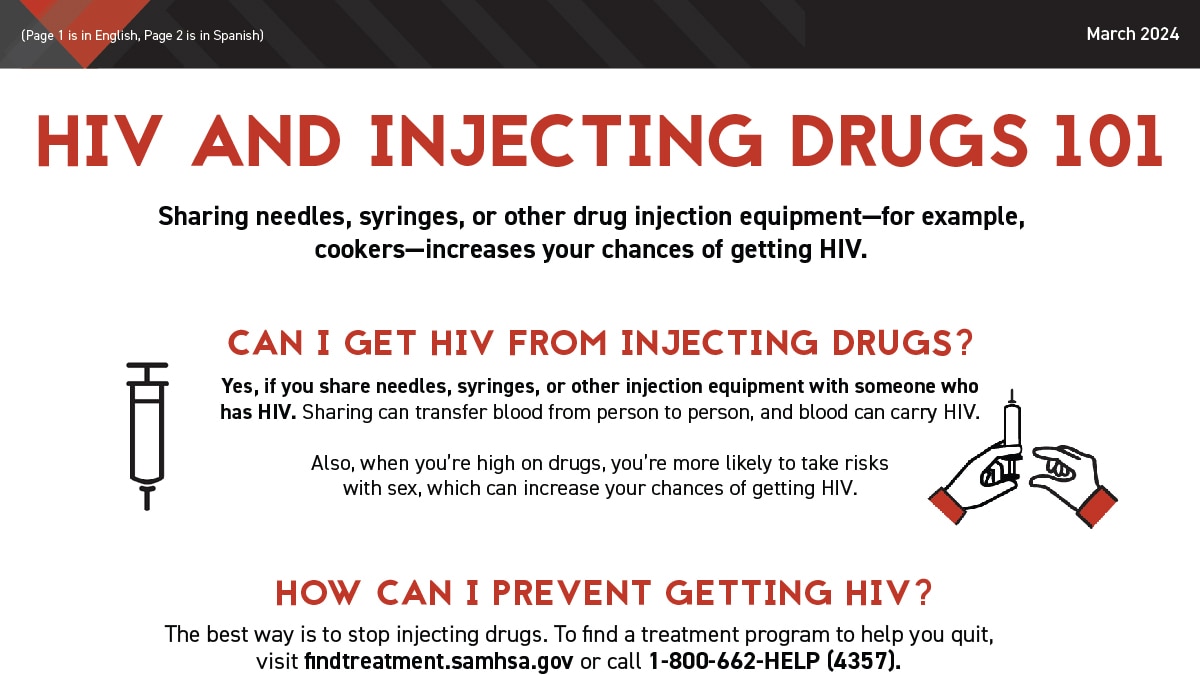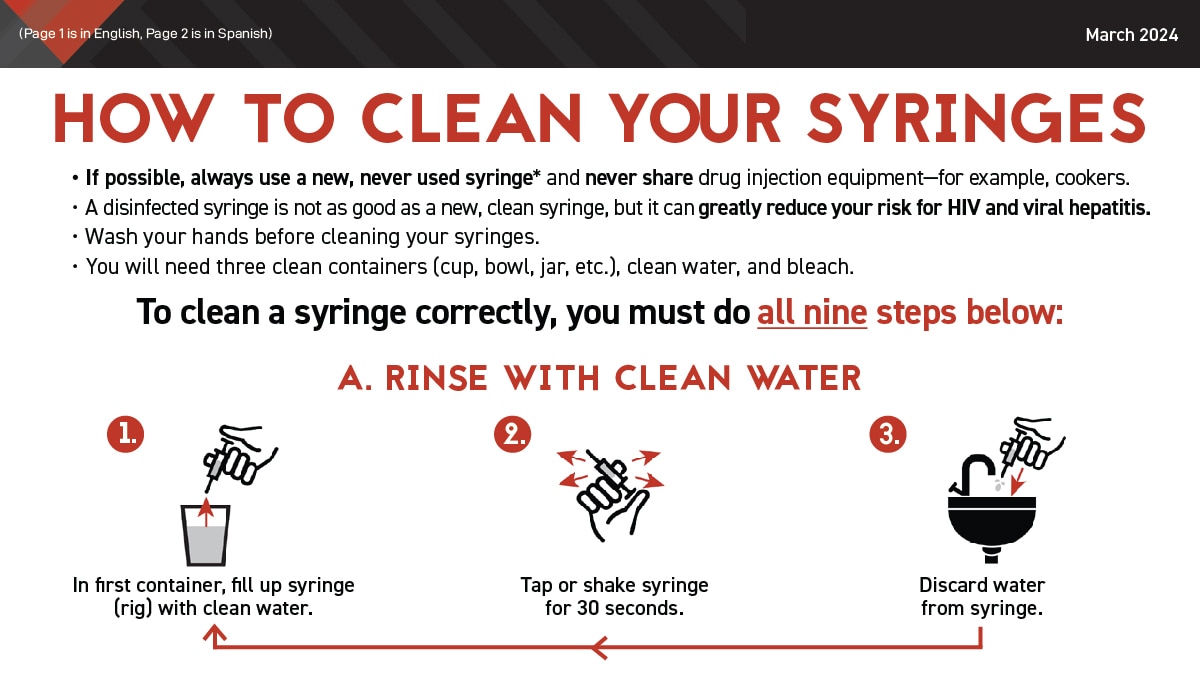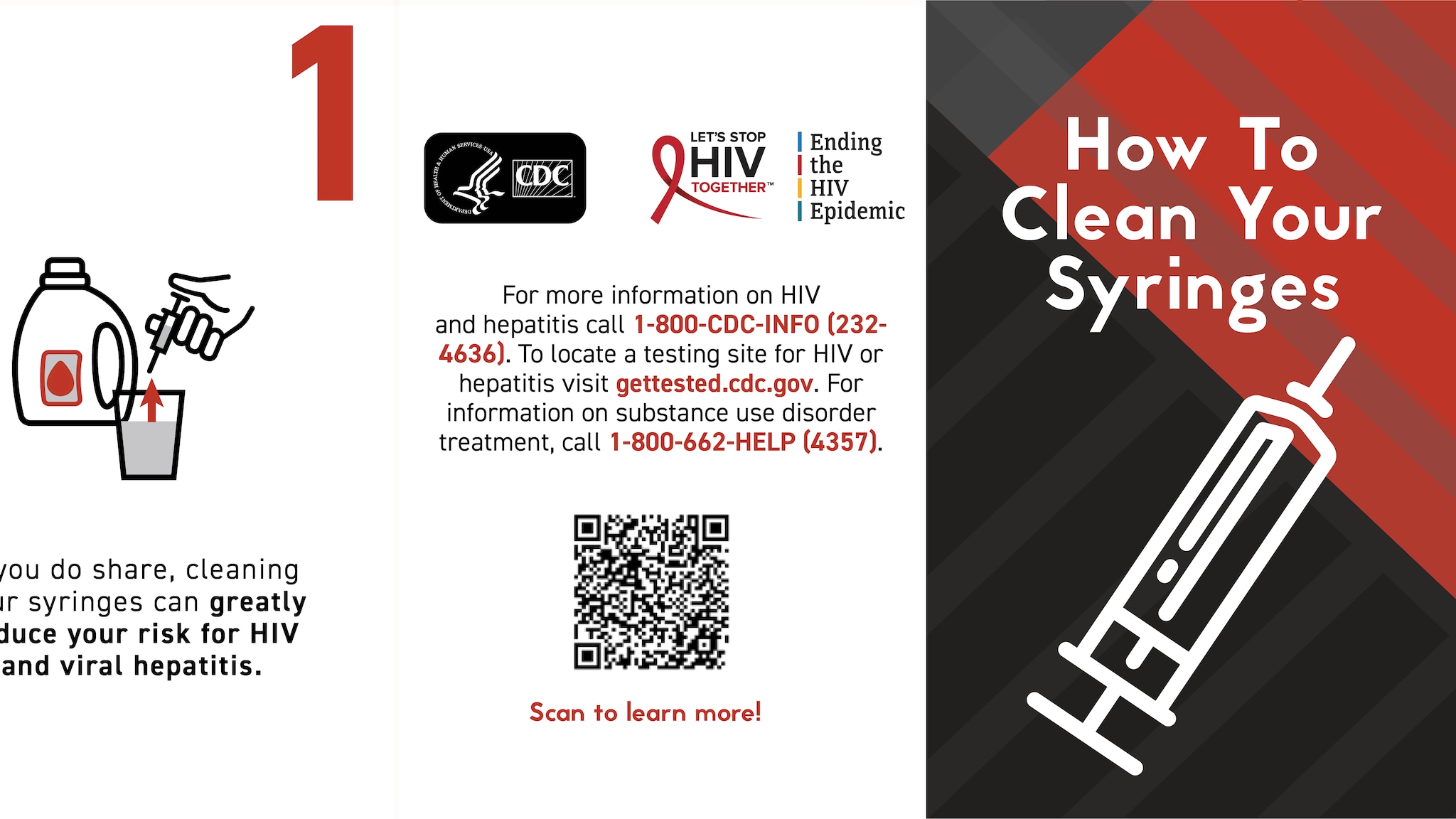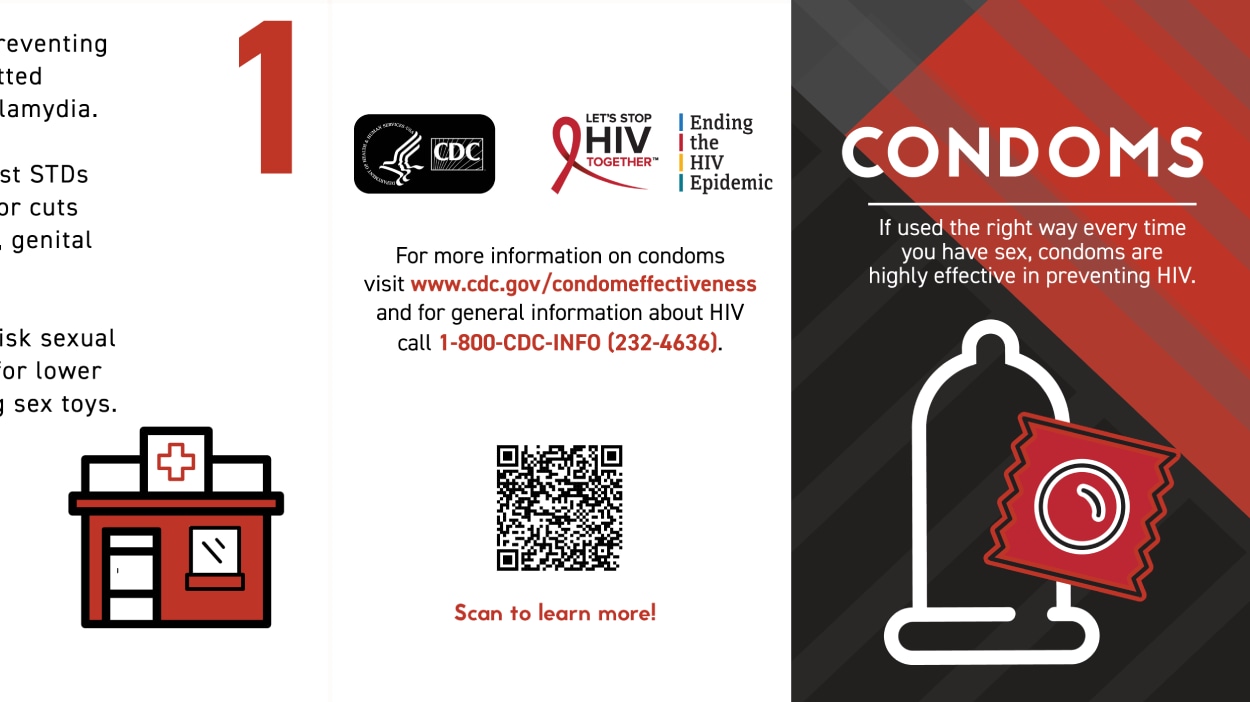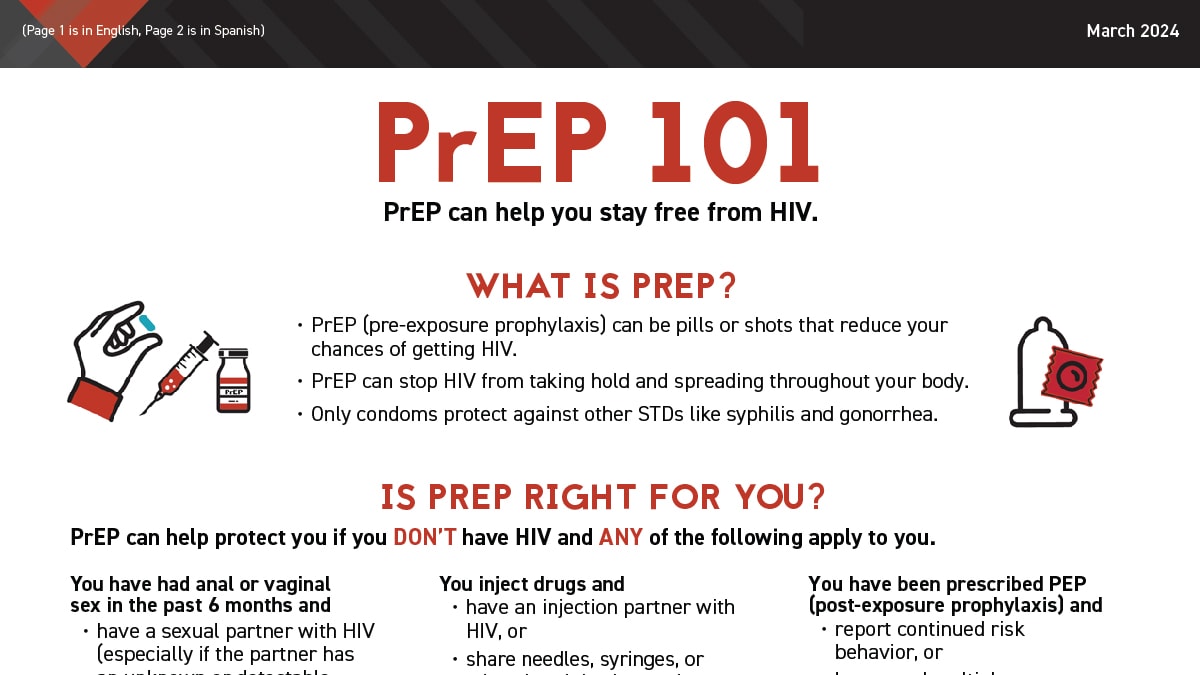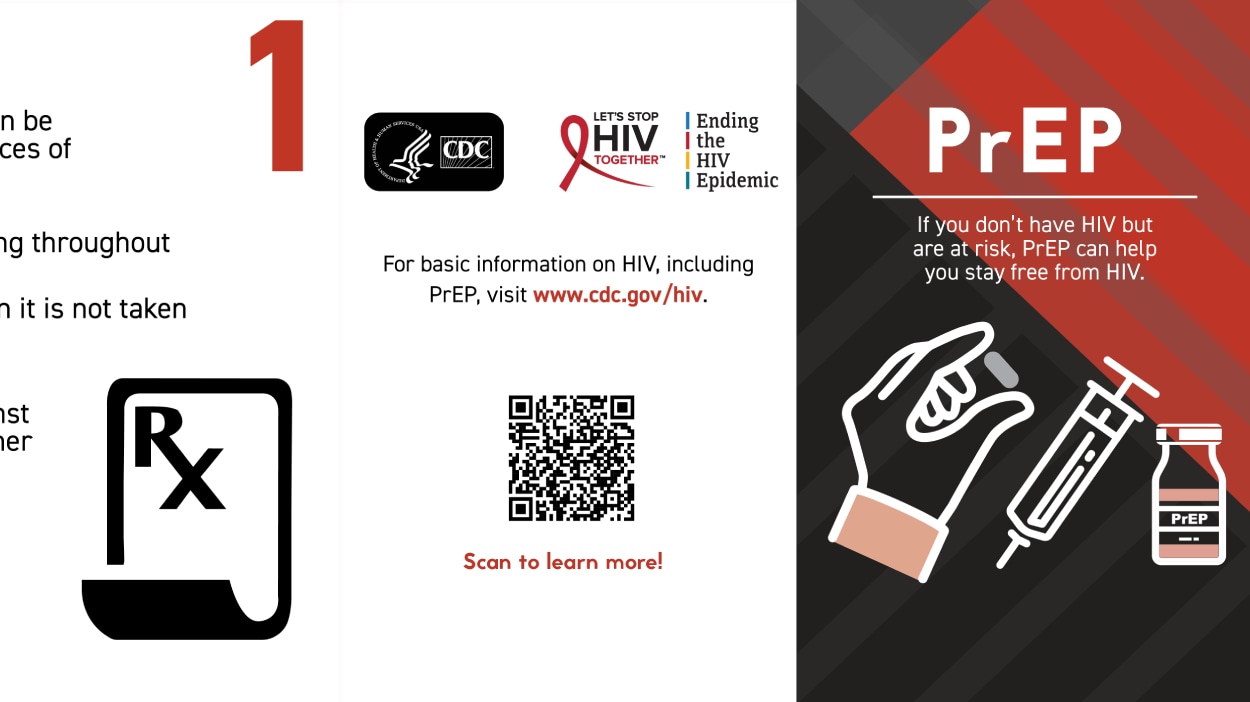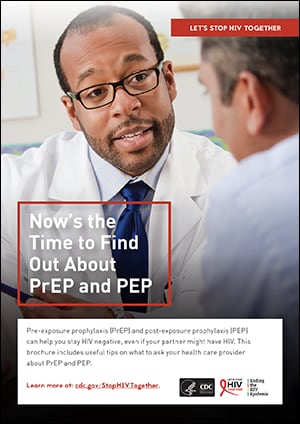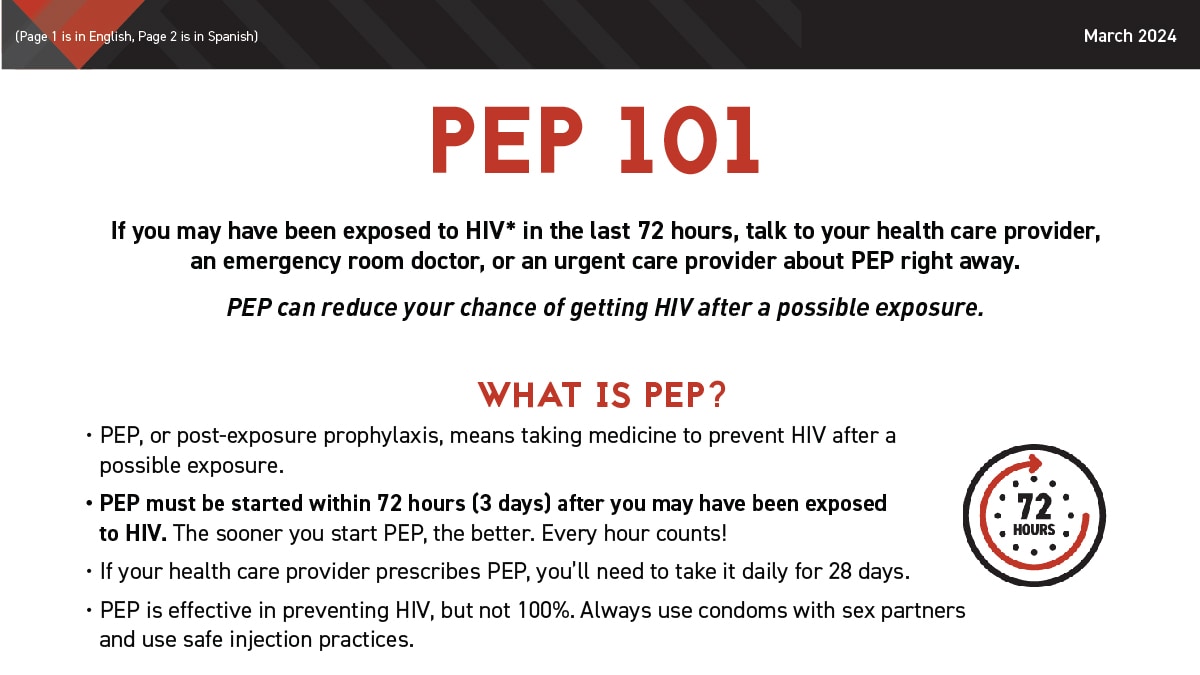Key points
- Many tools are available to help prevent HIV.
- You can choose not having sex, activities with lower chances of HIV transmission, never sharing needles, and using condoms.
- You can also use HIV prevention medicines such as PrEP or PEP.
- If you have HIV, you can prevent transmitting HIV to others.
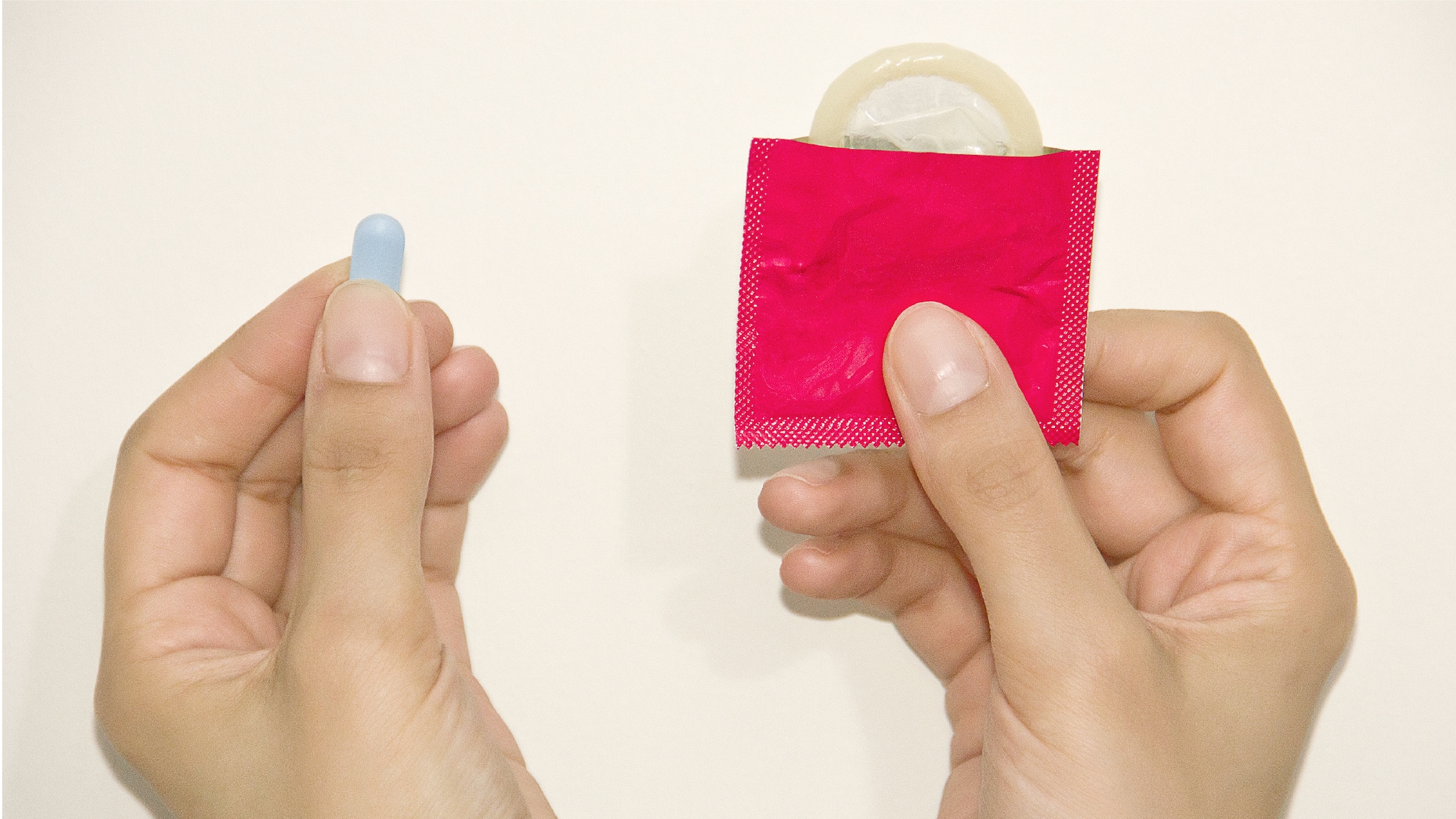
Overview
Most people who get HIV get it through anal or vaginal sex, or sharing needles, syringes, or other drug injection equipment (for example, cookers). However, there are powerful tools that can help prevent getting or transmitting HIV.
Prevention steps and strategies
Choose sexual activities with little to no chance of transmitting HIV
- There is little to no chance of getting HIV through oral sex.
- You can't get HIV from sexual activities that don't involve contact with semen, vaginal fluid, or blood.
Use condoms the right way every time you have sex
- Most condoms are highly effective in preventing HIV and other STIs, like gonorrhea and chlamydia.
- Condoms are less effective at preventing STIs that can be transmitted through sores or cuts, like genital herpes and syphilis.
- You can buy condoms online, in-store, or get them for free at your local clinic.
Take PrEP
- PrEP (pre-exposure prophylaxis) is medicine people take to prevent getting HIV.
- PrEP is highly effective for preventing HIV from sex and injection drug use when taken as prescribed.
Don't have sex
- Not having sex (being abstinent) is a 100% effective way to make sure you won't get HIV through sex.
- You can be abstinent at different times in your life for different reasons.
- Not having sex also prevents other STIs and pregnancy.
Get tested and treated for other STIs
- If you have another STI, you are more likely to get HIV.
- Many people with an STI may not know they have one because they don't have symptoms.
If you inject drugs, never share needles, syringes, or other drug injection equipment
- Use new, clean syringes and injection equipment every time you inject.
- You can get new needles and syringes and safely dispose of used at syringe services programs (SSPs). Find an SSP near you.
- Some pharmacies sell needles without a prescription.
- If you do share syringes, use bleach to clean them. A disinfected syringe is not as good as a new, sterile syringe, but it can greatly reduce your chances for HIV and viral hepatitis.
Don't inject drugs
- Not injecting drugs is a 100% effective way to make sure you won’t get HIV through injection drug use.
- Talk with a counselor, doctor, or other health care provider about treatment for substance use disorder, including medication-assisted treatment.
- Find a treatment center near you at FindTreatment.gov or SAMHSA.gov.
Ask about PEP if you think you may have recently been exposed to HIV
- PEP (post-exposure prophylaxis) is medicine people take to prevent HIV after a possible exposure.
- If you think you may have been exposed to HIV in the last 72 hours, talk to your health care provider, an emergency room doctor, or an urgent care provider right away about PEP.
If you or your partner has HIV, get and stay in treatment
- This is the most important thing people with HIV can do to stay healthy.
- People with HIV who take HIV medicine and get and keep an undetectable viral load will not transmit HIV to their sex partners.
If you are pregnant, get tested for HIV as soon as possible to prevent transmitting HIV to your baby
- If your test result is negative and you or your partner engage in behaviors that increase your chances of getting or transmitting HIV, get tested again in your third trimester.
- If your test result is positive, you can reduce the chances of transmitting HIV to your baby by taking HIV medicine as prescribed throughout pregnancy, labor, and delivery, getting and keeping a suppressed viral load, and giving HIV preventive medicine to your baby after giving birth.
- If you have a partner with HIV and are considering getting pregnant, talk to your health care provider about PrEP.
Talk to your health care provider about male circumcision
Male circumcision may decrease the chance of HIV transmission in some situations, but less than some other prevention options. Talk to your health care provider about the benefits and drawbacks of male circumcision.
Resources
HIV Treatment is HIV Prevention
How to Clean Your Syringes Pocket Guide
Your Journey to HIV PrEP Info Sheet
Now’s the Time to Find Out About PrEP and PEP (Brochure)

